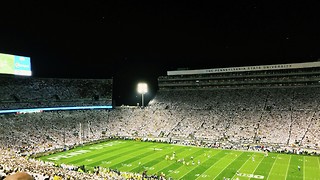Is it game over for Ender?
How to react to the discovery that one of your favourite books is about to undergo the Hollywood treatment? Grace Mitchell discusses the forthcoming film version of Orson Scott Card’s sci-fi classic Ender’s Game

A modern conundrum for bookworms everywhere: how is a reader supposed to react upon discovering that one of their favourite novels is next in line for a Hollywood adaptation?

My own reaction to learning about the intended film version of Orson Scott Card’s classic sci-fi novel Ender’s Game lay somewhere in a no-man’s-land between ecstatic happiness and cartoonish horror. The author’s involvement in the screenplay, and the news that Harrison Ford has been cast in a major role, allows for some cautious optimism.
However, the fact that the same film company also produced the Twilight series – not to mention that the director’s most recent cinematic effort was X-Men Origins: Wolverine – fills me with the dread of an android who has just been asked to empathise. Card’s skilled combination of convincingly human characters with a beautifully imagined alternate future is not easily replicated. And I cannot quite shake the fear that what I have long considered a wonderful novel will be remembered in popular imagination as a mediocre film.
Our premise is this: Earth’s military races against time to train exceptional children for an imminent conflict against vicious alien aggressors. Six-year-old Ender is the most gifted of these children; and, with humanity’s hopes of survival resting on his shoulders, he has to suffer through the most brutal training program in the galaxy. So far, so low-budget B-movie. I fully admit that my synopsis – like every other summary I have seen of Ender’s Game – fails to do justice to the ambitious scope and devastating emotional impact of Card’s novel.

It is a description which highlights (due to plot necessity) the fact that Ender’s Game is science fiction – Alien invaders! A Chosen One! Battles in space! – but entirely overlooks the concern for humanity which is at the heart of the novel. Never let it be said that I don’t appreciate the ‘science’ of science fiction. But it is, to my mind, recognisable human behaviour in an imagined setting which gives sci-fi so much of its ability to engage. It would be all too easy for a film to focus on special-effects depictions of technology, but to neglect the emotional implications: a process that would completely destroy the delicate balance which Card has achieved in Ender’s Game.
In summarising the novel, perhaps I would do better simply to write that Ender’s Game does not encourage apathy. Although not lacking in critical accolades, it has been frequently disparaged for its portrayal of violence involving – and often instigated by – young children. Ender, half innocent child, half psychopathic soldier, can never have a happy ending in a peaceful society.
I always finish Ender’s Game unsure of where my loyalties lie. These ambiguities and contradictions make the novel truly exceptional science fiction, but are, I fear, difficult to interpret through film, and a hard sell to a cinema audience. To return to my original question: how does one react to news of an adaptation of a much-loved book? My plan is to hope that the film remains true in some measure to the spirit of the original, and to try not to take it too personally when the inevitable changes are made. Wish me luck.
 News / Uni welcomes new students14 August 2025
News / Uni welcomes new students14 August 2025 News / Trinity sells O2 Arena lease for £90m12 August 2025
News / Trinity sells O2 Arena lease for £90m12 August 2025 Features / The community Cambridge accommodation creates (and doesn’t)9 August 2025
Features / The community Cambridge accommodation creates (and doesn’t)9 August 2025 News / Locals urge University to fund River Cam repairs16 August 2025
News / Locals urge University to fund River Cam repairs16 August 2025 Features / Incoming freshers and their hopes, fears and expectations for Cambridge 12 August 2025
Features / Incoming freshers and their hopes, fears and expectations for Cambridge 12 August 2025









